Featured International Guest Speakers
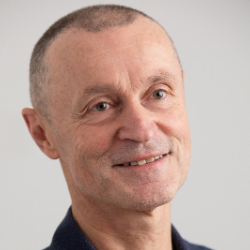
Dag Aarsland, MD
Professor of Old Age Psychiatry and Director of Centre for Healthy Brain Aging, Institute of Psychiatry, Psychology and Neuroscience, King’s College London, England
Dag Aarsland, MD, professor of Old Age Psychiatry and Director of Centre for Healthy Brain Aging at the Institute of Psychiatry, Psychology and Neuroscience at King’s College London. Aarsland is a leading dementia researcher, with long experience in leading multicentre projects including clinical trials. His main research interests are the neuropsychiatric aspects of patients with neurodegenerative diseases, in particular translational studies on cognitive decline in Parkinson’s disease and dementia with Lewy bodies and nutritional aspects. He is PI of the European DLB Consortium, academic is/has been co-ordinator of three EU IMI/IHI studies (RADAR-AD, PD-MIND, and PREDICTOM), member of the European Association of Neurology Scientific panel of dementia, past chair of the AAIC-ISTAART LBD PIA, and PI of several large multicentre observational and intervention trials. He has published more than 600 papers in dementia, including clinical trials, cohort studies, and a wide range of biomarkers including imaging, CSF and EEG. He has >95,000 citations and an H-factor 143 (Google scholar) and ranks number 4 in the Expertscape list of the world’s leading experts in Lewybody disease. His total grant income since 2016 is > 20,000,000 Euro).

Sube Banerjee, MBE, MBBS, MSc, MBA, MD, FRCPsych
Pro-Vice Chancellor & Professor of Dementia, University of Nottingham, England
Sube Banerjee is Pro-Vice Chancellor of the Faculty of Medicine and Health
Sciences at the University of Nottingham. Trained at St Thomas’s and the Maudsley
Hospitals and the Institute of Psychiatry, clinically he works as an old age
psychiatrist with a particular interest in memory assessment and treatment
services. He co-led the development of the
National Dementia Strategy for England and has worked closely with the World
Health Organisation and governments internationally on dementia policy. His research focusses on quality of life and
quality of care in dementia. He has been awarded national and international
awards for policy and research in dementia.

Marco Duering, MD
Professor of Experimental Neurology, LMU Munich, Germany & University of Basel, Switzerland
Marco is Professor of Experimental Neurology at LMU Munich and currently serves as Principal Investigator at the University of Basel and as Chief Scientific Officer at the Medical Image Analysis Center in Basel, Switzerland. Previously he worked at the LMU Munich, Germany and the Donders Center in Nijmegen, the Netherlands. His research focuses on the development and validation of imaging markers for clinical trials in cerebrovascular, neurodegenerative and neuroinflammatory diseases.

Miia Kivipelto, MD, PhD
Professor of Clinical Geriatrics at Karolinska Institutet (KI), Center for Alzheimer Research; Senior Geriatrician and Director for Research & Development of Theme Aging, Karolinska University Hospital, Stockholm, Sweden
Miia Kivipelto, MD, PhD, is Professor of Clinical Geriatrics at Karolinska Institutet (KI), Center for Alzheimer Research, and senior geriatrician and Director for Research & Development of Theme Aging at Karolinska University Hospital, Stockholm, Sweden. Part of her Nordic-UK Brain Network (NBN) multidisciplinary research team (around 100 researchers and clinical staff) is located at University of Eastern Finland and Imperial College London (ICL), UK, where she has part time position as Professor. Her frontline research findings have been published in leading journals 460+ publications, H-index 89) and she has received numerous prestigious national and international awards.
Dr. Kivipelto’s translational research focuses on the prevention, early diagnosis and treatment of cognitive impairment, dementia and Alzheimer’s disease (AD). Through epidemiological studies, Prof. Kivipelto has identified various lifestyle and vascular risk factors for dementia and interactions with genetic factors and clarified underlying mechanisms. She has developed the first tool for predicting dementia risk based on midlife risk profiles. This is still one of the few validated risk scores in the field and is in clinical use (including clinical trials). These findings paved the way to the current prevention trials.
Professor Kivipelto is the PI of the landmark FINGER Randomized Controlled Trial (RCT) (Finnish Geriatric Intervention Study to Prevent Cognitive Impairment and Disability), which is the first large-scale trial showing that a multi-domain lifestyle-based intervention can reduce the risk of cognitive and functional impairment among at risk persons from general population. FINGER has caused a paradigm shift, i.e. cognitive decline is no longer an inevitable consequence of aging but can be prevented with multidomain interventions. This pragmatic model is now tested and adapted worldwide, and Professor Kivipelto has launched the World Wide FINGERS network, a unique interdisciplinary network to share experiences, harmonise data, and plan joint international initiatives for the prevention of cognitive impairment/dementia (60 countries currently involved). She is also founder of the FINGERS Brain Health Institute (www.fbhi.se) aiming to find novel solutions to promote brain health and prevent cognitive impairment and dementia.
Professor Kivipelto has also contributed to understanding of biological mechanisms underlying dementia/AD and she is actively involved in phase I-III clinical trials and is leading several international consortia. She is often invited to the the leading global dementia conferences and task forces, including the G8 Dementia Summit, WHO ministerial meeting in Global actions against dementia and dementia risk reduction guidelines, Neurology and Covid-19 Global Frorum, among others.
She has received numerous of prestigious awards, including Forska!Sverige Research Award (2022), Melvin.

Celina Pluim McDowell, MA
Clinical Psychology PhD Candidate, Boston University
Predoctoral Neuropsychology Resident, Brown University
Celina Pluim McDowell is a PhD candidate in the clinical psychology program at Boston University, where she is co-mentored by Dr. Alice Cronin-Golomb (Boston University) and Dr. Yakeel Quiroz (Massachusetts General Hospital/Harvard Medical School). She is currently completing her year-long predoctoral residency in neuropsychology at the Alpert Medical School of Brown University. Her research is focused on examining factors related to health and wellbeing that may increase or reduce cognitive decline risk, including factors such as purpose in life, loneliness, sleep, and circadian rhythms. She completed a T32 predoctoral fellowship with the Division of Sleep Medicine at Brigham and Women’s Hospital/Harvard Medical School under the mentorship of Dr. Jeanne Duffy to examine associations among sleep, circadian rhythms, and cognitive functioning in older adults, and was subsequently awarded a predoctoral National Research Service Award (F31) from the National Institute on Aging to support this work as part of her doctoral dissertation.
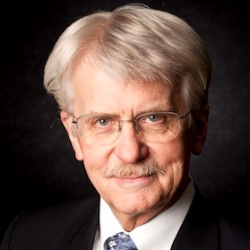
Ronald C. Petersen, MD, PhD
Director, Mayo Alzheimer’s Disease Research Center and the Mayo Clinic Study of Aging, Minnesota
Dr. Ronald C. Petersen received a PhD from the University of Minnesota and graduated from Mayo Medical School in 1980. He completed an internship in Medicine at Stanford University Medical Center and returned to the Mayo Clinic to complete a residency in Neurology that was followed by a fellowship in Behavioral Neurology at Harvard University Medical School/Beth Israel Hospital in Boston, Massachusetts. Dr. Petersen was named the Cora Kanow Professor of Alzheimer’s Disease Research in 2000 and Mayo Clinic Distinguished Investigator in 2011. He is currently the Director of the Mayo Alzheimer’s Disease Research Center and the Mayo Clinic Study of Aging and has authored over 1000 peer-reviewed articles on memory disorders, aging, and Alzheimer’s disease. Dr. Petersen has received the 2004 MetLife Award for Medical Research in Alzheimer’s Disease and the 2005 Potamkin Prize for Research in Picks, Alzheimer’s and Related Disorders of the American Academy of Neurology. In 2012 he received the Khachaturian Award and the Henry Wisniewski Lifetime Achievement Award in 2013 from the Alzheimer’s Association. In 2011 he was appointed by the Secretary of Health and Human Services to serve as the Chair of the Advisory Committee on Research, Care and Services for the National Alzheimer’s Disease Plan. He has been a member of the World Dementia Council.
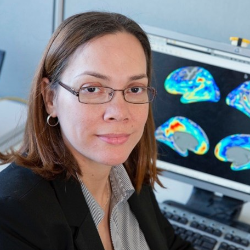
Yakeel T. Quiroz, PhD
Associate Professor of Psychiatry and Neurology Massachusetts General Hospital, Harvard Medical School, Boston
Dr. Quiroz is Associate Professor in the Departments of Psychiatry and Neurology at Harvard Medical School and Massachusetts General Hospital (MGH) in Boston, MA. She is the Director of the MGH Familial Dementia Neuroimaging Lab and the Multicultural Alzheimer’s Prevention Program-MAPP. She earned her master’s degree in cognitive neuroscience and PhD in clinical psychology from Boston University. Her research interests include brain imaging, genomics, early detection, cognitive resilience and preclinical biomarkers of Alzheimer’s disease and other dementias.
She is the principal investigator of the Colombia-Boston (COLBOS) biomarker study of autosomal-dominant Alzheimer’s disease, which follows individuals from the world’s largest extended family with a single, AD-causing mutation (E280A in Presenilin-1), and the Boston Latino Aging Study (BLAST), which seeks to characterize AD-related biomarkers and dementia risk and protective factors in older Latinos living in the US. She is also the PI of the Healthy Aging and Resilient Brain Study that seeks to identify genetic modifiers of cognitive resilience and Alzheimer’s resistance in individuals with ADAD and other dementias. She is Co-Investigator of the Harvard Aging Brain Study (HABS, PI: Sperling), a longitudinal biomarker study of cognitively unimpaired older individuals at risk for sporadic AD, and Co-Investigator of the Alzheimer’s Clinical Trials Consortium (ACTC, PIs: Aisen, Sperling, Petersen).
Dr. Quiroz’s work has been recognized with several awards, including an NIH Director’s Early Independence Award, the FABBS Foundation Early Career Impact Award, the MGH Research Scholar Award (2020-2025) and the Alzheimer’s Association Inge Grundke-Iqbal Award for Alzheimer’s Research.
Dr. Quiroz also serves as Director of the MGH Multicultural Assessment and Research Center (MARC), and the MGH postdoctoral and predoctoral training programs in Multicultural Neuropsychology.

Vijay K Ramanan, MD, PhD
Consultant and Assistant Professor, Department of Neurology, Mayo Clinic, Rochester
Dr. Ramanan is a Consultant and Assistant Professor in the Department of Neurology and Division of Cognitive/Behavioral Neurology at the Mayo Clinic in Rochester. His clinical and research interests center on neurodegenerative diseases, particularly in relation to polygenic risk scores and blood biomarkers of disease. He is also the Director of the Alzheimer’s Disease Treatment Clinic and is involved in clinical trials for AD and related diseases. Prior to arrival at Mayo Clinic where he completed his Adult Neurology Residency and Behavioral Neurology Fellowship before joining on staff, he completed his undergraduate degree at the University of Notre Dame and his MD/PhD at Indiana University School of Medicine.

Andrew Sommerlad, MBBS, PhD
Associate Professor and Consultant Psychiatrist, Division of Psychiatry, University College London, United Kingdom
Andrew Sommerlad is an Associate Professor at Division of Psychiatry, University College London and a Consultant Old Age Psychiatrist, supported by a Wellcome Trust fellowship. He is a member of the Lancet Standing Commission for Dementia Prevention, Intervention and Care which has produced key evidence on the potential for prevention of dementia through modification of lifestyle factors and summarised evidence on effective interventions and care for those who have dementia. This evidence has been incorporated into national guidelines, and cited as one of the key breakthroughs in dementia research by Alzheimer’s Research UK. His research also aims to understand the nature, causes and consequences of social functioning impairment in people with dementia and approaches to improve social functioning for people with the earliest stages of dementia, to those with severe dementia in care homes. He will present evidence from the 2024 Lancet Commission report on Dementia Prevention, Intervention and Care.

James Tew, MD
Vice President Medical Affairs, UPMC Western Psychiatric Hospital; Associate Chief, UPMC Western Psychiatric Hospital, Inpatient Services; Associate Professor, Department of Psychiatry, University of Pittsburgh School of Medicine, Pennsylvania
Dr. James Tew is Vice President Medical Affairs, Associate Chief of Inpatient Clinical Services, and Associate Professor of Psychiatry at UPMC Western Psychiatric Hospital (WPH). Dr. Tew is subspecialty trained in geriatric psychiatry. Dr. Tew received his medical degree, residency, and fellowship training in adult and geriatric psychiatry at the University of Pittsburgh. Dr. Tew has received numerous teaching awards from medical students and psychiatry residents at the University of Pittsburgh School of Medicine.
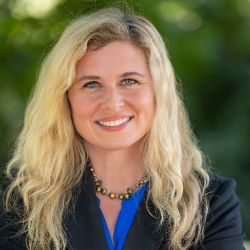
Rachel Whitmer, Ph.D.
Professor of Public Health and Neurology; Chief of the Division of Epidemiology at the University of California Davis
Rachel Whitmer is a tenured Professor of Public Health Sciences and Neurology, Chief of the Division of Epidemiology at the University of California Davis (UC Davis) School of Medicine and Co-Director of the UC Davis Alzheimer’s Disease Research Center. Professor Whitmer was the first female ‘Target of Excellence’ hire at UC Davis School of Medicine, a special hiring mechanism to recruit high impact scientists who are internationally renown experts in their fields and will bridge needed gaps in the research mission of the university. Dr. Whitmer was hired to meld population science and epidemiology with the UC Davis Alzheimer’s disease research center and help the center expands into community-based sciences with a focus on groups historically underrepresented in research. Dr. Whitmer is Director of the Population Brain Health Lab (https://rachelwhitmer.ucdavis.edu) which uses life course epidemiological methods to reduce inequities in brain aging; through study of dementia incidence, cognitive aging, and brain pathology in diverse racial/ethnic groups, those with diabetes, and the oldest-old. She is Principal Investigator of four National Institutes of Health funded cohort studies of dementia, cardiovascular health, and cognitive aging as well as US POINTER, a lifestyle multi-domain behavioral intervention clinical trial. Prior to joining UC Davis, Dr. Whitmer was a Senior Scientist and Director of the Population Cognitive Aging Lab at Kaiser Permanente Division of Research for 18 years where still holds an adjunct appointment. In her work leveraging electronic medical records for prediction models, she created the first 10-year diabetes specific risk score for dementia, validated a midlife dementia risk score, and was the first to identify midlife obesity/overweight, hyperlipidemia, smoking, and hypertension as long-term risk factors for all-cause dementia.
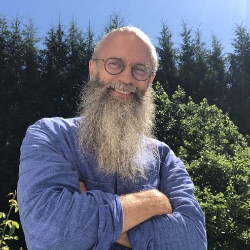
Henrik Zetterberg, MD, PhD
Professor/ Department Head, University of Gothenburg; Clinical Chemist, Sahlgrenska University Hospital, Gothenburg, Sweden
Henrik Zetterberg is a Professor of Neurochemistry at the University of Gothenburg, Sweden, and University College London, UK, and a Clinical Chemist at Sahlgrenska University Hospital in Gothenburg, Sweden. He is Head of the Department of Psychiatry and Neurochemistry at the University of Gothenburg, leads the UK DRI Fluid Biomarker Laboratory at UCL, and is a Key Member of the Hong Kong Center for Neurodegenerative Diseases and a Visiting Professor in the UW Department of Medicine, School of Medicine and Public Health, Madison, Wisconsin. His main research focus and clinical interest are fluid biomarkers for brain diseases, neurodegenerative diseases in particular.
Speakers
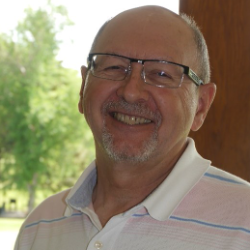
Brian Dompé
Edmonton Seniors Coordinating Council Board, United Way of the Alberta Capital Region Re-United Cabinet, Canada
Brian spent 35 years with various federal and provincial government departments, primarily in Human Resources, retiring as Director, Employee Training & Development, Human Resource Management Information Systems, and Occupational Health & Safety with the Alberta Corporate Service Centre. Following retirement, Brian spent an additional 8 years as a Campaign Manager for the United Way of the Alberta Capital Region, and also operated a small family business (Lone Spirit Investments). Brian has served on a number of Not-for-Profit, Municipal and Provincial Boards over the years and currently serves on the Edmonton Seniors Coordinating Council Board and the United Way of the Alberta Capital Region Re-United Cabinet. He has been an active community volunteer throughout his life and continues to volunteer for Habitat for Humanity, Edmonton Food Bank, Hope Mission, United Way of the Alberta Capital Region, Sage (Seniors Association of Greater Edmonton) and numerous city festivals and special events. He is also a volunteer facilitator delivering 3 health related workshops with the University of Alberta Department of Geriatrics and Alberta Health Services. Over the last few years, Brian has become engaged in healthy aging and health research matters and serves as Patient Representative on the Alberta Strategy for Patient Oriented Research Executive Committee and represents them on SPENCOP (Strategy for Patient Oriented Research Patient Engagement National Community of Practice Committee); as a Senior Advisor on the development and recent launch of the Northern Alberta Regional Centre for Healthy Aging; as a Patient Partner/Advisor on 3 current research projects; and as a reviewer for various grant applications.

Serge Gauthier, CM, CQ, MD, FRCPC
Emeritus Professor in Neurology and Psychiatry, co-lead of the Dementia Education Program, McGill University, Canada
Dr. Serge Gauthier is Emeritus Professor in Neurology and Psychiatry at McGill University. Previously he has been Director of the McGill Centre for Studies in Ageing and holder of a Research Chair at the Canadian Institute for Health Research, Clinical Investigator and Staff Neurologist at the Montreal Neurological Hospital and Institute.
His research interests include aetiology and treatment of Alzheimer's disease and related diagnosis, development of consensus guidelines on approval and use of antidementia drugs, and on the rights of persons with dementia to participate in research. His publications include Clinical Diagnosis and Management of Alzheimer's Disease (2006), Case Studies in Dementia (2021), ADI’s World Alzheimer Reports (2021, 2022). He has published 775 peer-reviewed articles and book chapters. H-index 134.
His contributions to research include design and implementation of randomised clinical trials to establish the safety and efficacy of cholinesterase inhibitors, muscarinic agonists, and agents possibly modifying progression of Alzheimer’s disease and vascular dementia. He is a founding member of ASAD and of VASCOG. He was a recipient of the Prix Galien Award in 1997, the Order of Canada in 2014 and the Order of Québec in 2017.

Maiya R. Geddes, MD, FRCPC
Killam Scholar & FRSQ Clinician Scientist
The Neuro, McGill University
Maiya Geddes is a Neurologist Scientist and Killam Scholar at McGill University. She leads a translational cognitive neuroscience research program at the Neuro focused on motivational resilience in aging and Alzheimer’s. Dr. Geddes combines cutting-edge behavioral and multi-modal neuroimaging techniques. In addition, she designs and leads behavioral clinical trials with the goal of dementia prevention. Dr. Geddes is the recipient of the 2024 Brain Canada Future Leaders award, an ASRP New Investigator award and the American Neuropsychiatric Association Career Development Award. Her research is funded by the CIHR, NSERC, FRSQ, Brain Canada, Healthy Brains, Healthy Lives, and the National Institutes of Health.
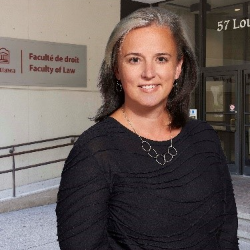
Daphne Gilbert, BA, LLB, LLM
Professor, Faculty of Law, University of Ottawa, Canada
Professor Daphne Gilbert is part of the legal team behind recent court challenges to expand access to Medical Assistance in Dying (MAiD) in British Columbia and Ontario. Her research interests lie primarily in the Charter of Rights and Freedoms, with a particular emphasis on equality rights, reproductive rights, MAiD and sexual/gender-based violence. She has recently written on the impact of conscience protections on access to contraception, abortion and MAiD in Canada. She joined the Faculty at University of Ottawa after obtaining an LLM from Yale University as a Fulbright and SSHRC scholar. She is Vice Chair of the Boards of both Dying with Dignity Canada and Fòs Feminista Canada. She can be reached at dgilbert@uottawa.ca.

Lissa Kuzych, OT Reg (Ont)
Occupational Therapist, Plum Tree Memory Care; Homecare Therapist, MINT Memory Clinic; Adjunct Clinical Professor, McMaster University, Canada
Lissa received an Honors BA from Western University
in 1990, and a Bachelor of Health Sciences in Occupational Therapy from
McMaster University in 1992.
For the last 20 years, Lissa has focused on her role
as an Occupational Therapist in MINT Memory Clinics as a homecare therapist,
having completed over 7000 home care visits.
Lissa supports student Occupational Therapists in
her role as an Adjunct Clinical Professor at McMaster and has trained and
educated MINT Memory Clinic teams across many provinces in Canada.
Lissa is involved in many projects aimed at
increasing access to care and designing tools to facilitate management of
memory loss. Such initiatives include the development of a Virtual Home
assessment tool.
She has dedicated herself to supporting people in
the community in achieving their safest, most independent, and fulfilled lives.
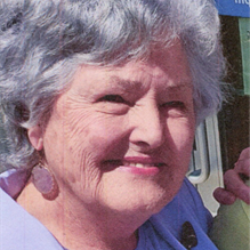
Myrna Norman
Patient Partner, Purple Angels, Canada
Myrna Norman is from Maple Ridge BC, a suburb of Vancouver, and her life has taken a significant turn after being diagnosed with Frontal Temporal Dementia in 2009. Myrna is a passionate advocate for those with memory issues and runs a peer group called the Purple Angels in her hometown where she organizes fun events like Christmas in July. Some of the groups that offer highlights to Myrna’s life are the Engagement of Persons Living with Dementia (EPLED) group, the Dementia Sisterhood, the Action Committee, CCNA, and the Alzheimer’s Society of Canada Advisory. She has been involved in many meaningful projects including a You-tube video of People Sharing Their Wisdom about Dementia, a Dementia Friendly Task Force, How to Engage People with Dementia in Research, Advance Care Planning, Building Capacity and Flipping Stigma, and more. Recently, Myrna completed the Patient and Community Engagement in Research (PaCER) program, where she was part of a team of people with lived experience who carried out a qualitative research study evaluating an educational video about vascular cognitive impairment.
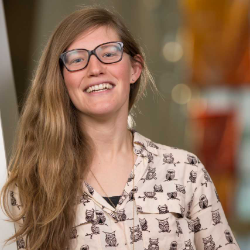
Jolene Phelps, PhD
Postdoctoral Researcher, University of Victoria, Canada
Jolene is currently a postdoctoral researcher at the University of Victoria in the departments of Mechanical Engineering and Medicine. She holds a PhD in Biomedical Engineering and a BSc in Chemical Engineering from the University of Calgary. Her current research focuses on the development of treatments for Alzheimer's disease and related dementias, with funding from the Alzheimer Society of Canada's Research Program. Before returning to the lab, Jolene was the program manager for the Vascular Training (VAST) Platform (vast-training.org), where she led the development of training opportunities and projects focused on improving research impact and empowering people with lived experience.
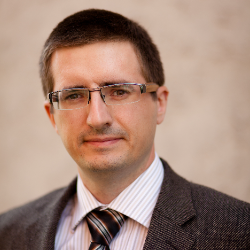
Dallas Seitz, MD PhD
Professor, Department of Psychiatry, Hotchkiss Brain Institute, and O'Brien Institute for Public Health, Cumming School of Medicine, University of Calgary, Co-Chair, Canadian Coalition for Seniors Mental Health, Canada
Dr. Seitz is a Professor of Psychiatry and Community Health Sciences, in the Cumming School of Medicine, University of Calgary. He is the Scientific Director of the Provincial Addiction and Mental Health program at Alberta Health Services, Co-Chair of the Canadian Coalition for Seniors’ Mental Health and immediate past president of Canadian Academy of Geriatric Psychiatry. His research examines health service and knowledge translation in geriatric mental health. Dr. Seitz is actively involved in the development health system strategies, guidelines and policies related to seniors and mental health at both the provincial and national level.
Abstract Speakers
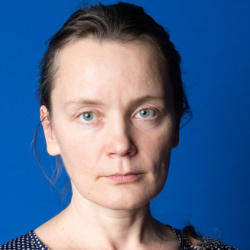
Yuliya Bodryzlova
Yuliya recently graduated from the School of Public Health at the University of Montreal. Her areas of interest are behavioural, structural, and social determinants of "positive" outcomes of cognitive aging (cognitive maintenance, cognitive reserve, brain maintenance, and brain reserve).

Dylan Guan, HBSc, MD/PhD student
Hotchkiss Brain Institute, University of Calgary
Dylan holds an Honours Bachelor of Science from the University of Toronto, with a major in Neuroscience and minors in Physiology and Psychology. Dylan has been awarded the Vanier Canada Graduate Scholarship, Izaak Walton Killam Memorial Scholarship, Alzheimer's Society Research Program Doctoral Award, Hotchkiss Brain Institute Harley Hotchkiss Doctoral Scholarship in Neuroscience, and VAST Doctoral Award.

Sandra Magalhaes, BHSc, MSc, PhD (Epidemiology)
Research Associate
University of New Brunswick
Dr. Sandra Magalhaes a Research Associate at the University of New Brunswick affiliated with the New Brunswick Institute for Research, Data and Training (NB-IRDT) and Department of Sociology. Her research interests are in chronic disease epidemiology across the lifespan, including active research projects focused on both pediatric and aging populations, and conditions of the brain such as dementia and mental health.

Adam Morrison, MSc, CHE
Senior Director, Public Policy & Partnerships
Alzheimer Society of Ontario
Adam Morrison (he/him) is a public policy professional with more than 15 years of leadership experience in health care, social services, Indigenous relations, and post-secondary education administration. He works for the Alzheimer Society of Ontario as the Senior Director of Public Policy & Partnerships, focused on building the profile and capacity of Alzheimer Societies across Ontario. Adam also supports health and social care providers with capacity building, engagement, and strategic planning, focused on integrated care for older adults in his consulting practice. Adam has a Master of Science from the London School of Economics and Political Science.

Neda Rashidi-Ranjbar, MD, PhD
Manager of Research Program - Neurodegenerative Disease
Neda Rashidi-Ranjbar is a neuroscientist specializing in neurodegenerative diseases. Currently, she manages the research program for neurodegenerative disorders at St. Michael's Hospital, where she provides clinical and methodological expertise for project proposals and grants. In addition to overseeing advanced analytical approaches, Neda runs clinical trials utilizing novel technologies aimed at treating individuals at risk of dementia. With a deep understanding of neuroimaging biomarkers, clinical assessment, and cognitive function, she is dedicated to advancing research in this field and improving patient outcomes.
Returning Registrant
Event Date & Time
October 18, 2024
9 am - 5 pm Eastern Daylight Time (EST)
Event Location
Virtual, Zoom Events
Information & Assistance
Conference Services
conferences@uhn.ca

 Copyright© 2017 | MYConference Suite Registration | D.E. Systems | All Right Reserved.
Copyright© 2017 | MYConference Suite Registration | D.E. Systems | All Right Reserved.